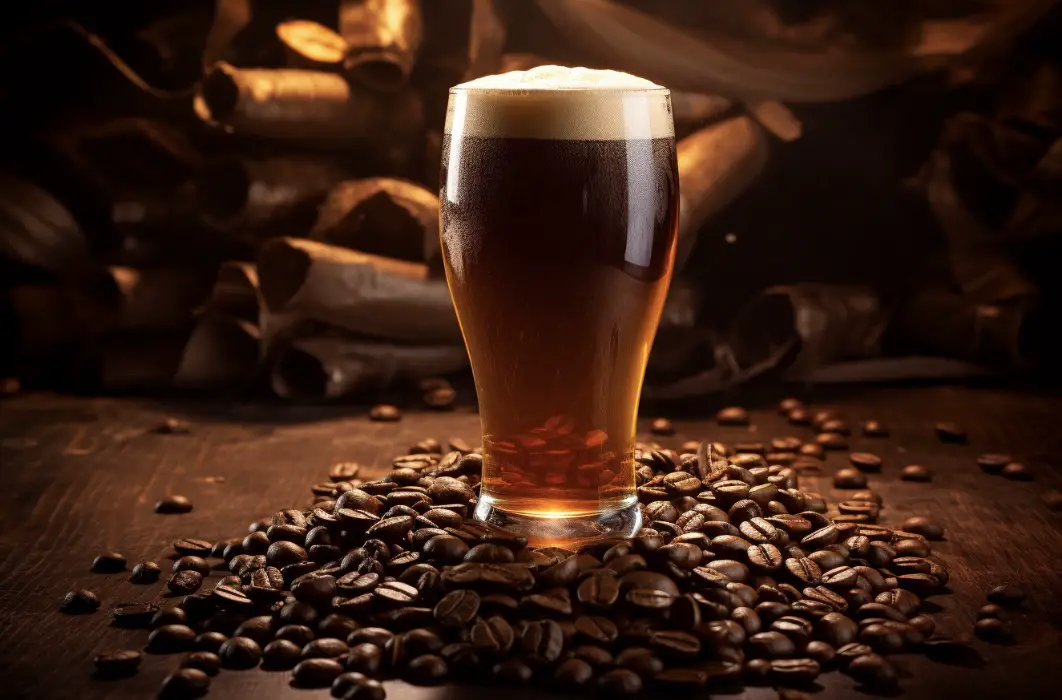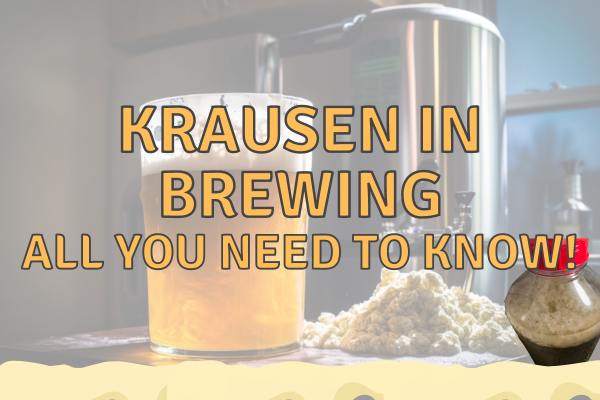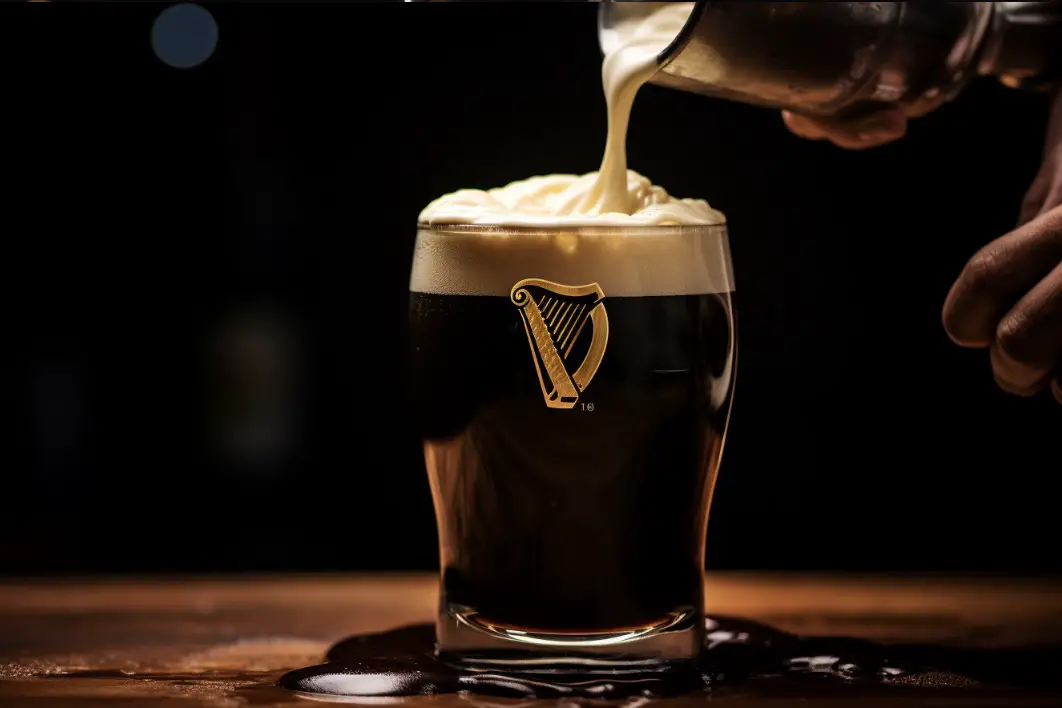As a brewer that likes to experiment a lot, I’ve spent countless hours brewing with interesting new ingredients to create unique flavors.
One of my most rewarding experiments has been blending two of my favorite beverages, beer and coffee, into one.
It’s a marriage of flavors that offers a delightful surprise to the palate. So, in this blog post, I’ll guide you on how to brew beer with coffee.
Brewing beer with coffee involves selecting the right coffee beans and beer style, roasting and grinding the beans, brewing the beer, and then adding the coffee at the right stage of the brewing process.
How is coffee added to beer?
Coffee can be added to beer in various ways. One common method is by adding coffee beans directly to the brewing process during fermentation or aging. This allows the flavors and aromas of the coffee to infuse into the beer.
Another approach is using cold brew coffee, where brewed coffee is added to the beer after fermentation.
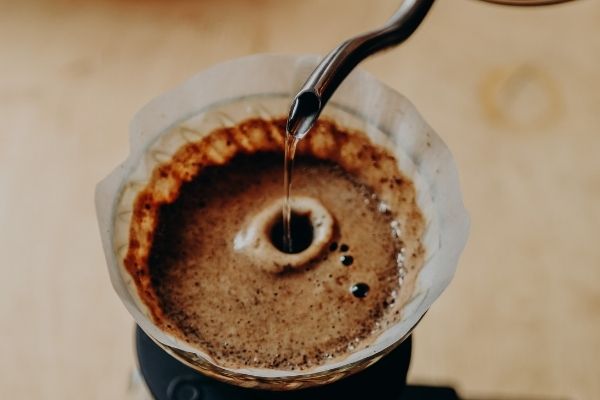
Additionally, some brewers use coffee extracts or concentrates to add coffee flavors to their beer. The amount and timing of adding coffee can vary depending on the desired intensity of coffee flavors in the final beer.
Choosing the Right Coffee Beans
Your choice of coffee beans is critical in determining the flavor profile of your beer. Different beans have different tastes – some are fruity, others chocolaty, while others may have a nutty flavor.
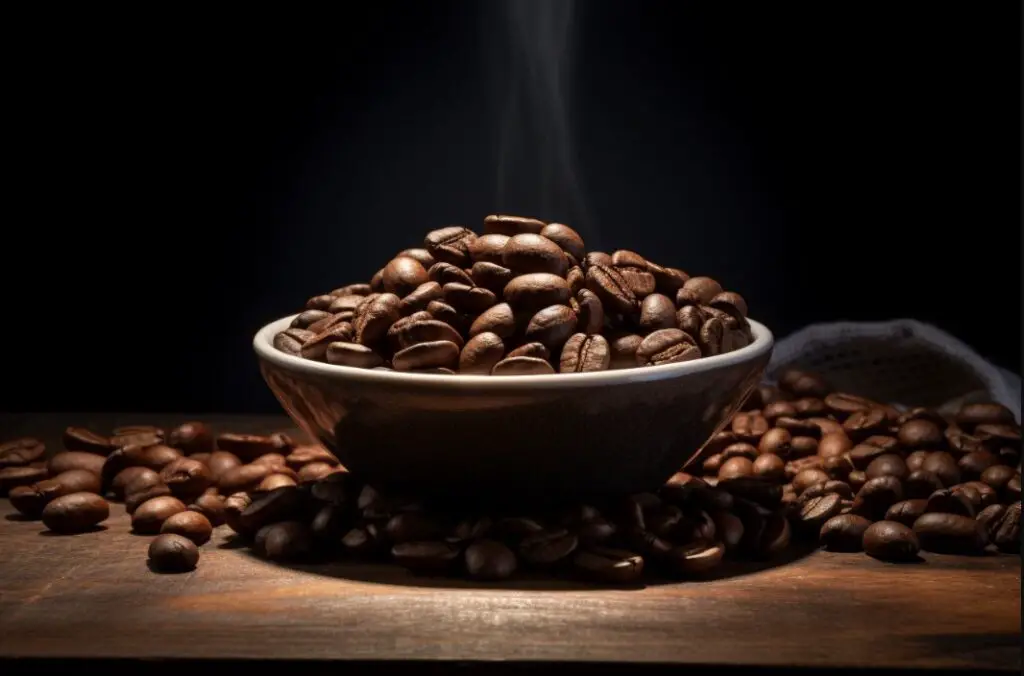
In my experience, I’ve found that medium-roast beans offer the best balance of flavor for most beer styles.
Tips for Selecting Coffee Beans
1. Single-origin beans usually offer a more distinct flavor.
2. Experiment with various beans to find the one that suits your preference.
3. Consider the beer style you’re brewing – dark beers pair well with dark roast beans, while lighter beers go well with light to medium roast beans.
Selecting the Beer Style
The beer style you choose to brew significantly influences the overall taste of your coffee beer. Darker beers such as porters and stouts are traditional favorites for coffee infusion due to their robust flavors. Their chocolate and caramel notes beautifully complement the bitterness of coffee.
Choosing the Right Beer Style for Coffee
1. For an intense coffee flavor, go for stouts or porters.
2. For a subtle coffee hint, try amber ales or brown ales.
3. For a unique twist, experiment with lagers and pilsners.
Roasting and Grinding the Beans
The way you roast and grind your coffee beans also affects the flavor of your coffee beer. I recommend a coarse grind, as it extracts less bitterness than a fine grind. Remember, the goal is to enhance the beer’s flavor, not overpower it.
How to Roast and Grind Coffee Beans
1. A coarse grind is ideal for a balanced flavor profile.
2. Freshly roasted and ground beans provide the best flavors.
Brewing the Beer
Brewing the beer follows the standard process – mashing your grains, boiling the wort, adding hops, and cooling. The key difference when brewing coffee beer is when you introduce the coffee.
Key Steps in Brewing the Beer
1. Mash the grains at the right temperature to extract the sugars.
2. Boil the wort and add hops according to your recipe.
3. Cool the wort before adding yeast for fermentation.
Adding the Coffee
When to add the coffee is a crucial decision. If you add it during the boil, it can lead to a harsh bitterness. That’s why I prefer adding cold-brewed coffee during the secondary fermentation process. It gives the beer a smoother, more rounded coffee flavor.
When to Add the Coffee
1. Cold-brewed coffee added during secondary fermentation offers the best flavor.
2. Avoid adding coffee during the boil to prevent excessive bitterness.
Tasting and Adjusting
Once your beer has finished fermenting and is properly carbonated, it’s time for the best part – tasting! If the coffee flavor is too subtle, you can always brew a bit more coffee and add it to the beer.
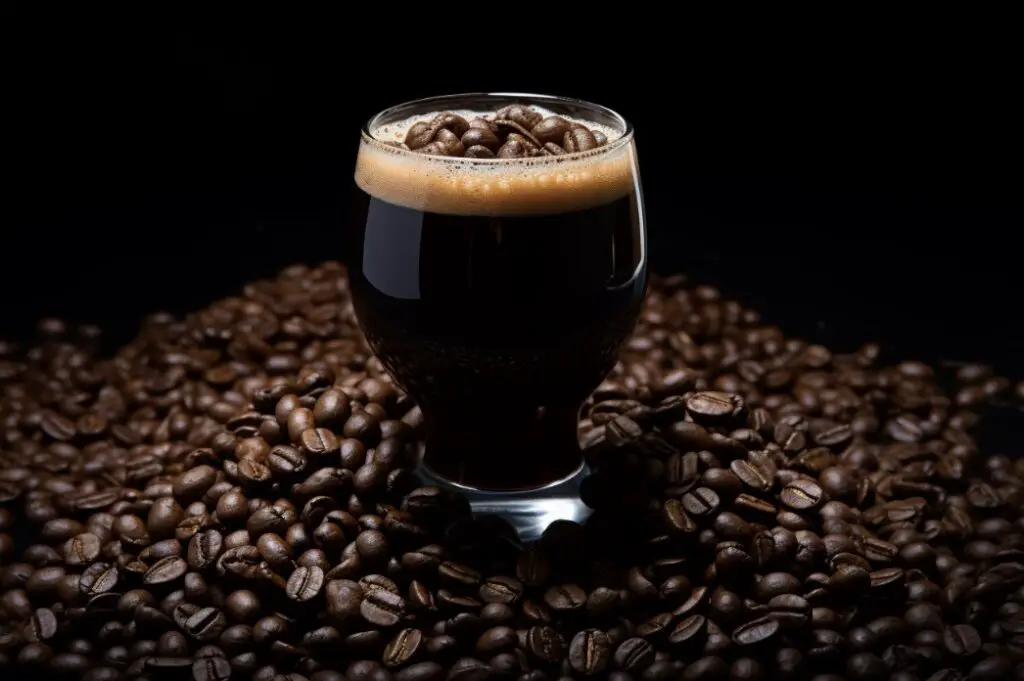
Tips for Perfecting Your Coffee Beer
- Taste your beer and adjust the coffee flavor as needed.
- Choose the right coffee beans: Select high-quality, freshly roasted coffee beans that complement the flavors of your beer. Experiment with different coffee origins and roasts to find the perfect match.
- Sanitize all equipment: Before adding coffee to your beer, ensure that all equipment, including containers, funnels, and siphoning tubes, are thoroughly cleaned and sanitized to prevent contamination.
- Use a coffee grinder: Grind the coffee beans just before adding them to the beer to preserve the freshest flavors and aromas. A coarse grind is generally preferred for better extraction.
- Control the brewing time: The contact time between the coffee and beer will impact the final flavor. Start with a short brewing time and gradually increase it until you find the desired balance. Remember that coffee can quickly overpower the beer if left for too long.
- Consider coffee temperatures: If you’re using cold-brewed coffee, ensure it’s at room temperature before adding it to the beer. Sudden temperature changes can affect the beer’s taste and clarity.
- Beware of coffee acidity: Some coffee beans can be quite acidic, which might clash with the beer’s flavors. Test the acidity level of the coffee and consider adjusting it with a small amount of cold water if needed.
- Experiment with coffee varieties: Don’t be afraid to try different coffee styles and techniques, such as using single-origin beans, blends, or adding coffee from different regions. Each coffee variety will bring unique nuances to your beer.
- Add in stages: If you’re unsure about the desired coffee intensity, add the coffee in small increments, tasting the beer after each addition. This way, you can stop when you reach the perfect balance.
- Avoid coffee oils: Coffee oils can cause unwanted issues with head retention in beer. To minimize this, try using a cold-brewed concentrate and avoid adding the grounds directly to the beer.
- Age the beer if necessary: Some coffee beers benefit from aging, allowing the coffee flavors to meld better with the beer over time. Store the bottles at a consistent temperature and try one periodically to gauge the optimal drinking time.
- Pay attention to carbonation: Carbonation can significantly impact the perception of flavors in beer. Adjust the carbonation level to complement the coffee notes and enhance the overall drinking experience.
- Share and seek feedback: Let others taste your coffee beer and gather feedback. Sometimes, a fresh perspective can help you identify areas for improvement and discover new possibilities.
- Document your recipe and process: Take notes during the brewing process, including the amount of coffee used, brewing times, and any adjustments made. This documentation will be invaluable when recreating or fine-tuning your coffee beer in the future.
Conclusion: Savor the Fusion of Flavors
Brewing beer with coffee is an exciting endeavor that combines two beloved beverages into a unique concoction. It’s a process that demands a careful selection of coffee beans and beer style, precise roasting and grinding, and a meticulous brewing process. But the end result is worth the effort – a beer that surprises and delights with its rich, complex coffee notes.
Here are ten essential facts about brewing beer with coffee:
1. Choosing the right coffee beans is crucial to the flavor of your beer.
2. Medium-roast beans generally offer the best balance of flavor.
3. Dark beers like porters and stouts pair well with coffee.
4. A coarse grind extracts less bitterness from the coffee.
5. Freshly roasted and ground beans provide the best flavors.
6. Add coffee during secondary fermentation for a smoother flavor.
7. Avoid adding coffee during the boil to prevent excessive bitterness.
8. You can adjust the coffee flavor by adding more cold-brewed coffee.
9. Making coffee beer requires patience and experimentation.
10. The fusion of coffee and beer offers a unique flavor experience.
FAQs
How does coffee affect beer?
Coffee can have a significant impact on beer when used as an ingredient. It can add flavors such as roasted, chocolate, or nutty notes, and enhance the overall complexity of the beer. Coffee can also contribute bitterness, acidity, and astringency, so it needs to be carefully balanced with other ingredients to avoid overpowering the beer’s flavors. Additionally, coffee can influence the beer’s aroma and mouthfeel, providing a rich and aromatic experience.
Why is coffee good with alcohol?
Coffee is often considered beneficial when consumed alongside alcohol due to its ability to counteract some of the effects of alcohol. Coffee contains caffeine, a stimulant that can help reduce the feelings of drowsiness and fatigue caused by alcohol. It may also temporarily increase alertness and improve cognitive function, counteracting the sedative effects of alcohol. However, it is important to note that coffee does not actually speed up the elimination of alcohol from the body, so it does not reduce blood alcohol levels or sober a person up. It simply masks some of the symptoms of alcohol intoxication.
How much coffee do I put in a 5 gallon batch of beer?
For a 5-gallon batch of beer, the amount of coffee you add depends on your personal taste preferences. As a general guideline, you can start with 2 to 4 ounces of coarsely ground coffee beans. It’s advisable to add the coffee during secondary fermentation or after primary fermentation has completed. You can taste the beer periodically to determine if the coffee flavor is to your liking, and adjust accordingly.
Can you brew coffee with beer?
No, you cannot brew coffee with beer. Coffee is typically brewed using hot water and coffee grounds, while beer is made through fermentation of grains or other ingredients. Mixing beer with coffee would result in a combination of flavors that may not be desirable.
Does coffee protect the liver from alcohol?
There is some evidence to suggest that coffee consumption may have a protective effect on the liver, particularly against the development of liver diseases such as cirrhosis and liver cancer.
However, beer with coffee is not likely to give less hangovers.

